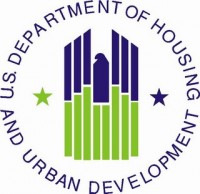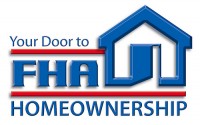 The U.S. Government announced several programs over the last few years to help homeowners in need of assistance to avoid foreclosure. These programs strive to help responsible homeowners who are simply having difficulty paying their mortgage.
The U.S. Government announced several programs over the last few years to help homeowners in need of assistance to avoid foreclosure. These programs strive to help responsible homeowners who are simply having difficulty paying their mortgage.
Every day thousands of people like you have trouble making the next mortgage payment. Though things may seem hopeless, help is available. However, you need to take the first step! If you ignore the problem you may lose your home to foreclosure, possibly affecting your ability to qualify for credit or to rent another home.
Available programs include:
- The HOPE NOW Alliance tries to help subprime borrowers who can afford the starter rate on a subprime loan but will not be able to make the higher payments once the interest rate goes up. Additional information on this program is available through the Homeownership Preservation Foundation.
- The Mortgage Forgiveness Debt Relief Act creates a three-year window for homeowners to refinance their mortgage and pay no taxes on any debt forgiveness that they receive. If your mortgage company forgave part or all of your debt between 2007 and 2012, you may be able to claim special tax relief by filling out Form 982 – Reduction of Tax Attributes Due to Discharge of Indebtedness (PDF document) and attaching it to your federal income tax return.
- Project Lifeline (PDF document) allows qualified homeowners who are at least 90 days late on their mortgage payments to “pause” the foreclosure process for 30 days. Subprime, Alt-A, and prime loans may qualify for this program, including second liens and home equity loans.
- The Making Home Affordable Program targets the affordability of homes by offering loan refinance or modification, second lien modification, and foreclosure alternatives to eligible homeowners. Answers to frequently asked questions from homeowners are available. You may also wish to speak to an approved housing counselor who can answer questions and make you aware of foreclosure rescue scams. The Internal Revenue Service (IRS) has made it easier to order a copy of your tax return transcripts for the program.
- The Hardest Hit Fund, part of the Making Home Affordable Program, provides targeted aid to families in states hit hard by the economic and housing market downturn. Each participating state Housing Finance Agency (HFA) has designed programs to meet the distinct challenges facing struggling homeowners. To see if you qualify for assistance under the Hardest Hit Fund, contact your state HFA.
- The deadline to sign up for the national Emergency Homeowners’ Loan Program (EHLP) was July 27, 2011. However, the Substantially Similar State Programs in Connecticut, Delaware, Idaho, Maryland, and Pennsylvania are still accepting applications. The program, geared toward helping homeowners who have experienced a reduction in income and are at risk of foreclosure, pays a portion of an approved applicant’s monthly mortgage including missed mortgage payments or past due charges. According to HUD, residents in these states who are interested in EHLP assistance must apply directly through the government agency administering the EHLP funds in their respective states. If you have questions on the national program, you may visit http://www.findehlp.org/ or call 1.855.FIND.EHLP (1.855.346.3345). A factsheet (PDF document) is available.
Using funds already authorized in the Housing and Economic Recovery Act of 2008, the Treasury is increasing its funding commitment to Fannie Mae and Freddie Mac to ensure the strength and security of the mortgage market and to help maintain mortgage affordability.
If you have questions about these programs, including eligibility requirements, you may contact:
- HOPE NOW Alliance at 1.888.995.HOPE (1.888.995.4673) or (TTY) 1.877.304.9709
- FIND EHLP 1.855.FIND.EHLP (1.855.346.3345)
- Fannie Mae at 1.800.7FANNIE (1.800.732.6643)
- Freddie Mac at 1.800.FREDDIE (1.800.373.3343)
- You may also contact your mortgage servicer or lender (the organization to whom you make your monthly mortgage payments)
Finally, for more information on how to file a complaint against the mortgage company or lender you have been working with, you may contact the HOPE NOW Alliance, the Federal Trade Commission (FTC), or, if bankruptcy is involved, your local office of the U.S. Trustee Program. You may also wish to contact your state or local bar association. They may be able to help you find affordable legal help.
Beware of foreclosure prevention scams
Beware of foreclosure prevention scams! You may be approached by organizations with official sounding names offering a quick fix to your mortgage problems. They often charge hefty fees or require that you “temporarily” sign over your deed to them. Remember — solutions that sound too good to be true usually are.
These precautions will help you avoid being taken by a scam artist:
- Never sign any papers you don’t fully understand.
- Check with a lawyer, your lender or trusted advisor, or a HUD-approved housing counselor before entering into any deal involving a loan assumption, contract of sale or a transfer of the deed to your home.
- If you can’t afford your current mortgage, don’t be talked into refinancing into a new loan with a higher payment.
To find a HUD counselor in your area call: 1-800-569-4287 or TDD 1-800-877-8339.
What is the FHA?
 The Federal Housing Administration (FHA) is part of the U. S. Department of Housing and Urban Development (HUD) and makes homeownership available to
The Federal Housing Administration (FHA) is part of the U. S. Department of Housing and Urban Development (HUD) and makes homeownership available to
individuals and families that need a little extra assistance, by providing mortgage insurance on loans made by FHA-approved lenders throughout the United States
and its territories. FHA borrowers are often first time homebuyers, moderate income families or folks who can’t afford a large down payment.
To learn more about FHA’s programs, please visit: www.hud.gov/fha or contact
the FHA Resource Center: 1-800-CALL-FHA (1-800-225-5342)
Additional Resources
- Homeowner Affordability and Stability Plan
- Guide to Avoiding Foreclosure
- Foreclosure Avoidance Counseling
- How to Make More Effective Phone Calls to Servicers
- Foreclosure Scams
- U.S. Department of Housing and Urban Development (HUD)
Please note: To view and print PDF documents, you must use the Adobe Reader software, which is available for download without charge.


